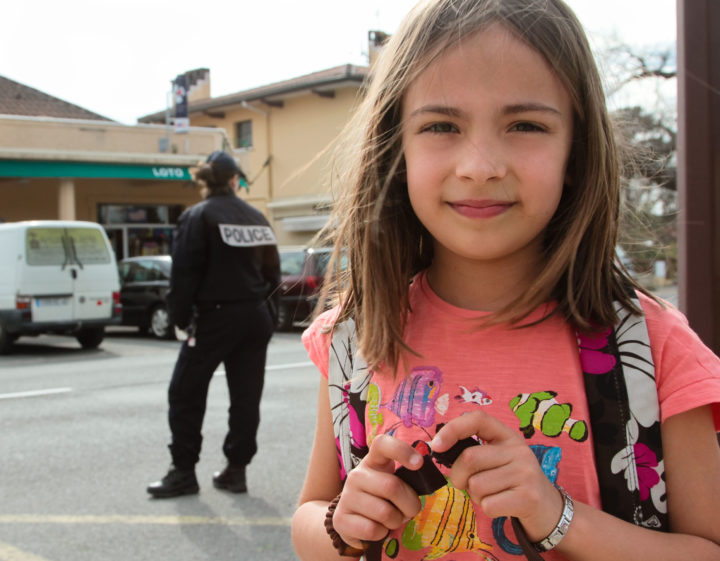The West Virginia Center for Children’s Justice is promoting a new way of dealing with traumatized students that’s building on the relationship between law enforcement and schools.


The West Virginia Center for Children’s Justice is promoting a new way of dealing with traumatized students that’s building on the relationship between law enforcement and schools.
The “Handle With Care” program spawned from high percentages of students in West Virginia schools dealing with traumatic home lives, and is designed to give police a means of tipping off schools that specific students could be struggling with serious problems. The program also highlights the importance of schools cultivating partnerships with the community, a critical element required for a variety of educational objectives, from developing character education programs to combating chronic absenteeism.
The Register-Herald reports:
According to 2016 data from the Robert Wood Johnson Foundation, more than half of West Virginia’s children (52.4 percent) have had at least one adverse childhood experience. Roughly 26 percent of the state’s children had two or more adverse experiences, such as the death or incarceration of a parent, witnessing or being a victim of violence, or living with someone who is suicidal or has substance use disorder.
Director Andrea Darr of the West Virginia Center for Children’s Justice told Concord University sociology students during a recent presentation on the “trauma-informed approach,” that “teachers aren’t trained to handle these children.”
“They see a misbehaving child,” she said. “They’re disrupting class so other students can’t learn, but traumatized children aren’t learning either.”
The program, launched as a pilot project in 2013 at Mary C. Snow Elementary School in Charleston, encourages local police officers to record the name, age, and school of children involved in potentially traumatizing incidents.
Officers then contact schools with a confidential text, fax, or phone call to alert administrators that a child may experience difficulty at school and they should “handle this student with care,” Darr said.
The information is not recorded as part of the child’s permanent record or any official police report, and officers do not disclose the nature of the incident. The intent is simply to advise schools that specific students are dealing with an emotional and turbulent time.
“All they need to know is this child might have trouble learning today,” Darr said. “It helped them be proactive instead of reactive with children in the classroom.”
The program is voluntary for county and local law enforcement, but many have answered the call to action and helped to expand the program statewide by 2015. As of February 2016, police have tipped off schools to a total of 580 incidents involving 1,056 kids, and schools are praising the program, the Register-Herald reports.
“We’ve received nothing but positive feedback,” said Eric Dillon, director of pupil services at Raleigh County Schools. “Lots of times, we as educators, administrators and counselors, we do not know that interaction is taking place outside the school. It’s always beneficial for us to know in dealing with that child the next day.”
Dillon said RCS received 149 Handle With Care referrals last year from the Beckley Police Department and the Raleigh County Sheriff’s Office, often times over the weekend. The information is relayed to teachers, who can then offer resources like counselors and social workers to students in need.
“There are so many things as an educator you can’t control,” Dillon said. “All our educators have the best interest in mind for all our students. To be able to intervene, to talk to the child and offer support for the child, it’s a win-win for our students and our school system.”
The effort to bring community leaders, in schools and local law enforcement, together in support of students is the same type of cohesion University of Virginia sociologist James Hunter describes in The Tragedy of Moral Education in America.
“Moral education can work where the community, and schools and other institutions within it, share a moral culture that is integrated and mutually reinforcing; where the social networks of adult authority are strong, united, and consistent in articulating moral ideals and their attending virtues; and where adults maintain a ‘caring watchfulness’ over all aspects of a young person’s maturation,” Hunter writes.
School leaders, teachers, board members and others can build on the strong social networks established through the “Handle With Care” program and similar efforts to intentionally develop a school ecosystem that supports good character, which would undoubtedly benefit both traumatized students and their classmates.
The Jubilee Centre offers a framework for schools to think through the community building process, with specific considerations for pupils and parents, as well as methods for connecting with community groups, businesses, other schools, and universities.